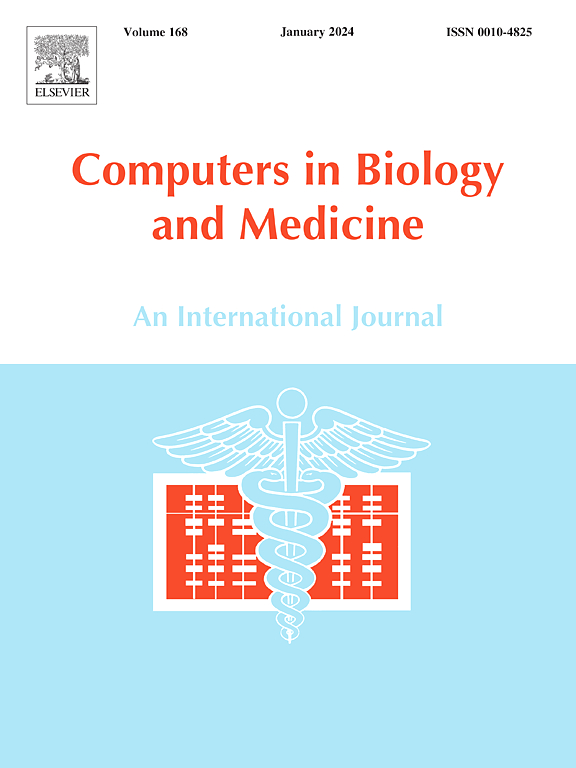基于变形注意力的神经网络在sMRI数据认知评分估计中的应用
IF 7
2区 医学
Q1 BIOLOGY
引用次数: 0
摘要
基于结构MRI准确预测认知评分对于了解痴呆病理分期和预测阿尔茨海默病(AD)具有重要的临床价值。一些现有的深度学习方法往往依赖于解剖学先验,忽略了AD进展过程中个体特异性结构差异。为了解决这些限制,本研究提出了一个包含Transformer注意力的深度神经网络,以联合预测多种认知评分,包括ADAS、CDRSB和MMSE。该架构首先采用三维卷积神经网络主干对sMRI进行编码,获取初步的局部结构信息。然后,结合三维位置编码和三维卷积层的改进Transformer注意块自适应捕获全脑的判别性成像特征,从而有效地聚焦关键的认知相关区域。最后,注意感知回归网络实现了多个临床评分的联合预测。实验结果表明,该方法优于现有的基于ADNI数据集的传统学习方法和深度学习方法。进一步的定性分析表明,该模型识别的痴呆相关脑区具有重要的生物学意义,有效提高了认知评分预测的性能。我们的代码可以在https://github.com/lshsx/CTA_MRI上公开获得。本文章由计算机程序翻译,如有差异,请以英文原文为准。
Transformer attention-based neural network for cognitive score estimation from sMRI data
Accurately predicting cognitive scores based on structural MRI holds significant clinical value for understanding the pathological stages of dementia and forecasting Alzheimer’s disease (AD). Some existing deep learning methods often depend on anatomical priors, overlooking individual-specific structural differences during AD progression. To address these limitations, this work proposes a deep neural network that incorporates Transformer attention to jointly predict multiple cognitive scores, including ADAS, CDRSB, and MMSE. The architecture first employs a 3D convolutional neural network backbone to encode sMRI, capturing preliminary local structural information. Then an improved Transformer attention block integrated with 3D positional encoding and 3D convolutional layer to adaptively capture discriminative imaging features across the brain, thereby focusing on key cognitive-related regions effectively. Finally, an attention-aware regression network enables the joint prediction of multiple clinical scores. Experimental results demonstrate that our method outperforms some existing traditional and deep learning methods based on the ADNI dataset. Further qualitative analysis reveals that the dementia-related brain regions identified by the model hold important biological significance, effectively enhancing the performance of cognitive score prediction. Our code is publicly available at: https://github.com/lshsx/CTA_MRI.
求助全文
通过发布文献求助,成功后即可免费获取论文全文。
去求助
来源期刊

Computers in biology and medicine
工程技术-工程:生物医学
CiteScore
11.70
自引率
10.40%
发文量
1086
审稿时长
74 days
期刊介绍:
Computers in Biology and Medicine is an international forum for sharing groundbreaking advancements in the use of computers in bioscience and medicine. This journal serves as a medium for communicating essential research, instruction, ideas, and information regarding the rapidly evolving field of computer applications in these domains. By encouraging the exchange of knowledge, we aim to facilitate progress and innovation in the utilization of computers in biology and medicine.
 求助内容:
求助内容: 应助结果提醒方式:
应助结果提醒方式:


